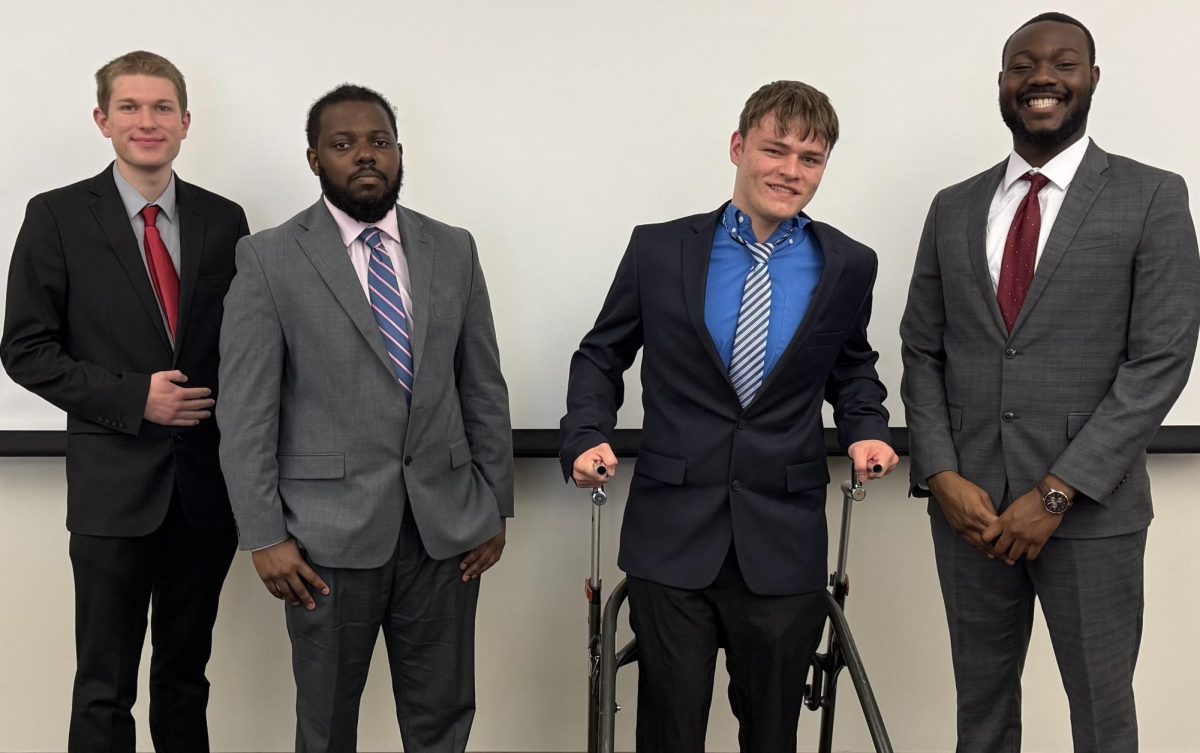Campus Senate: Athletic training program eliminated
January 25, 2017
The Campus Senate returned to work following the winter respite and quickly passed Resolution 46-10 with zero dissent, effectively eliminating the Bachelor of Science in Athletic Training degree at UIS before the program got off the ground.
The vote to eliminate the fledgling program was in accordance with policy changes set forth by the Commission on Accreditation of Athletic Training Education (CAATE), the accrediting body for athletic training programs.
CAATE recently changed its accreditation policy, denying initial accreditation to programs which do not have a four-year class of students on track to complete the program prior to Spring 2020 and mandating that “accredited professional athletic training programs must result in the granting of a Master’s Degree in Athletic Training.”
UIS’s B.S. in Athletic Training was just approved by the Illinois Board of Higher Education in September 2016, and, thus, the program has not been implemented, catalogued, nor advertised as open for enrollment, according to a November 2016 memorandum by Interim Associate Vice Chancellor for Undergraduate Education Robert Blankenberge.
Celest Weuve, the program director of athletic training, is presently developing a “master’s level degree proposal to replace the eliminated program,” wrote Blankenberger.
In other business, Eric Hadley-Ives noted that Gov. Bruce Rauner did not reappoint former mayor of Springfield Karen Hasara to the University of Illinois Board of Trustees, and that Rauner has yet to fill the three vacancies on the board in general.
The Campus Senate reviewed the Center for State Policy and Leadership (CSPL), headed by Dr. David Racine, who expounded the roots and the evolution of CSPL, its overarching mission, and the basic purposes of its units, which include:
• The Institute for Legal, Legislative, and Policy Studies
• The Survey Research Office
• The Papers of Abraham Lincoln
• The Graduate Public Service Internship program
• NPR Illinois
• The Office of Electronic Media
Interim Vice Chancellor for Academic Affairs and Provost James Ermatinger briefly spoke about the university’s enrollment numbers and the challenges to recruitment, partly resulting from the increasing number of schools waiving application fees for prospective students.
Ermatinger also reported that graduate student enrollment is down across the country – a phenomenon Ermatinger attributes to a decrease in enrollment by international students partly resulting from the divisive rhetoric of the campaign season and partly because the economy is improving.
The senate heard from Amy McEuen, associate professor of biology who reported revisions the Department of Biology is making to the physical science and mathematics requirements in its program’s curriculum.
The goal is to recruit and retain top-caliber undergraduate students and make the UIS undergraduate biology curriculum more reflective of the biology curricula found in the highly competitive biology programs in the Council of Public Liberal Arts Colleges.
Associate Chancellor for Public Affairs Ryan Croke introduced the newly hired Senior Director of Human Resources Melissa Mlynski, before briefly reporting on budget proposals being considered in the Illinois House of Representatives and the Illinois Senate.
Mlyinski described an “ongoing litigation dispute” between the American Federation of State County and Municipal Employees (AFSCME), which represents many UIS employees, and the State of Illinois, concerning collective bargaining negotiations.
“For the time being, there won’t be modifications to State healthcare plans,” said Mlynski.
Dr. Betsy Goulet, a professor in the Department of Public Administration, reported that the Child Advocacy Studies program (CAST), which Goulet implemented at UIS, has been certified/accredited.
SGA President Austin Mehmet reported that the SGA will be discussing resolutions to address issues international students are having with Curricular Practical Training, which enables international students to acquire either paid or unpaid work in accordance with the requirements of their degree program, despite F1 Visa work restrictions.
Mehmet also said that the SGA will be discussing resolutions to address issues former UIS students are encountering with their university email address. According to Mehmet, SGA will discuss resolutions which may result in providing former UIS students email forwarding services to ensure that they do not lose data sent to their discontinued university email address after they are no longer enrolled in the school.
The Campus Senate convened for approximately 95 minutes, and it is scheduled to meet again on Friday, Feb. 3, in PAC G, at 10 a.m.












